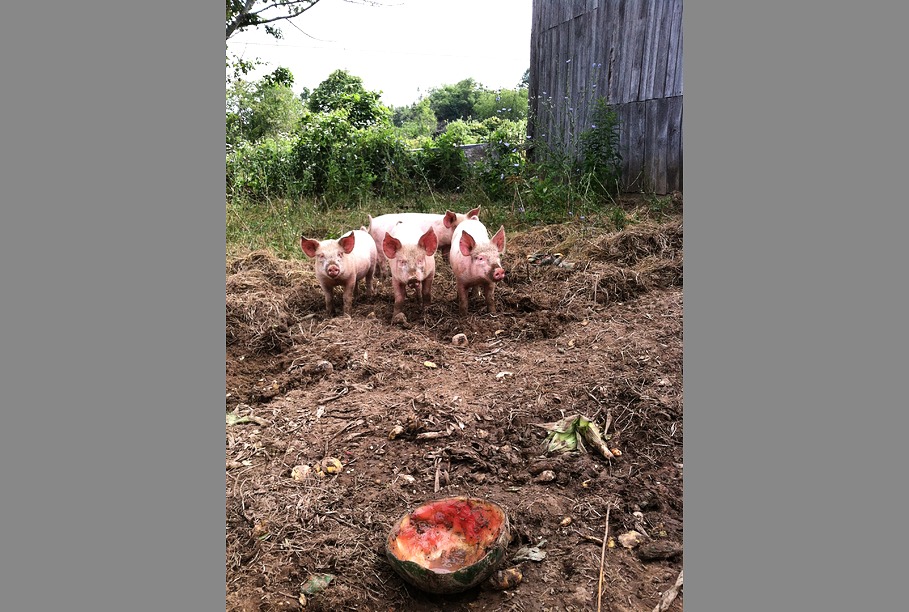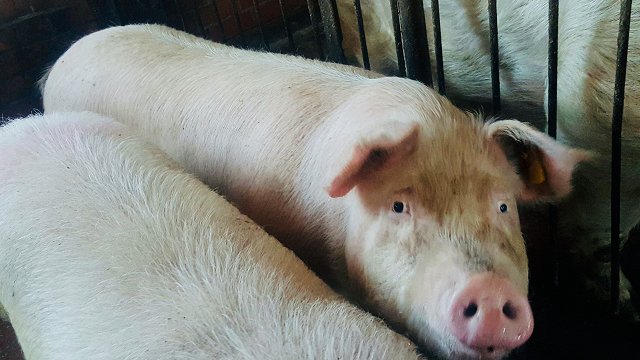Six animals among a herd of 43 were confirmed by laboratory analyses as having the disease, which is deadly to pigs and wild boar alike, but harmless to humans. The carcasses were destroyed and disinfection measures taken at the site, which is the first farm since August 29 to see the infections spread to its pigs.
In addition, ten more wild boar specimens were confirmed to be infected with ASF among two hunted down and eight found carcasses in north-central Vidzeme and southeast Latgale provinces.
This brings the count to a total of 100 wild boar and 72 domestic pigs infected so far, prompting the culling or slaughter of 564 farm-raised animals.
Daily newspaper Diena visited Latgale’s border areas near Belarus and reported Monday on “the century’s biggest swine funeral”.
The district of Krāslava contains some of the hardest-hit parishes in Latgale. District local government deputy and agricultural coordinator Viktorija Lene told Diena that she has heard nothing but the despairing pleas of residents all summer long – both larger pig-farmers and small homesteaders alike.
“They come and ask why the district council does nothing, why it allows this to happen. Some farm workers even tried to assemble to block the PVD vehicles from coming in,” Lene said.
Ērika Gabrusāne of the local parish councils in Robežnieki, Indra and Piedruja was also critical of the PVD’s tactics.
“Our people were frightened by the PVD threats and rushed to slaughter dozens upon dozens of their healthy pigs, getting ridiculously low compensations in return…. Some of the more spiteful farmers who hesitated are now the winners, as the PVD warnings have been toned down. This is all a political affair to get Latgale to decline and die off,” Gabrusāne said.
Krāslava district mayor Gunārs Upenieks echoed the sentiment: “This is a conspiracy of the big pig farms of the EU and Latvia. Our small farms in Latgale were a thorn in their side, since people here feed their own families, friends and neighbors with better-tasting home-raised pork, and thus don’t buy their product.”
Visiting at the gates of Cirmas bekons, one of the larger commercial pig farms in Ludza district, Diena spoke with some of the exhausted workers who came off the territory, disinfected themselves and shared their experiences.
“Our whole village depends on this farm, but many workers have already been let go. What should these families eat, how to pay for their kids to get to school?”, one aging man asked, pushing his moped home.
Board chairman Oskars Liepiņš told Diena that while Cirmas bekons had seen no cases of ASF in its herds, it still had to slaughter close to 500 sows.
“EU regulations prohibited the sale of piglets to Poland, which was our main market. Though Polish veterinary health authorities have cleared our product, we can’t convince our business partners to take it, they just refuse to buy. Our barns can only hold so many pigs, so we’re keeping 700 sows and distributing only locally,” he explained.
As for compensation payments promised for the slaughtered sows, Liepiņš said they had not yet been transferred. “It won’t save the farm, but might allow us to restructure,” he said, noting that switching to cattle or poultry meat would probably be the best option to pursue.
There have also been complaints that official analyses have produced contradictory results, yet PVD officials don’t allow independent testing. Many fault state government officials for failing to cancel the annual Catholic pilgrimage to the Aglona Basilica despite a general ban on all public events in the affected state-of-emergency territories, a move locals claim was based on politicians’ reluctance to pull the plug on a pre-election campaign opportunity among the devout.
As Krāslava mayor Upenieks concluded: “But there are grounds for these conspiracy theories. Knowing that Belarus has had an outbreak of ASF, how prepared were we in Latvia? There’s only one incineration facility for the whole land! At the height of the outbreak there were no containers to keep the culled animals in, many were defective. The carcasses rotted in the heat there for several days, then our workers had to drag them off to be burned. They found enough money to save two banks, but for a couple of incineration machines, nothing doing,” he said.




























